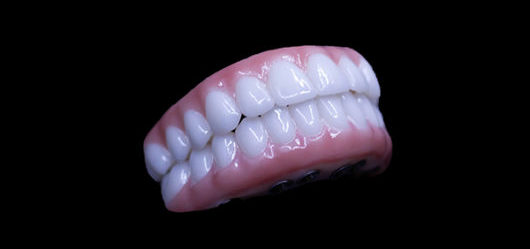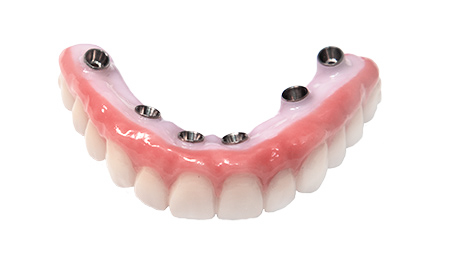8 Easy Facts About Dental Sense Explained
8 Easy Facts About Dental Sense Explained
Blog Article
Our Dental Sense PDFs
Table of Contents7 Simple Techniques For Dental SenseThe Single Strategy To Use For Dental SenseThe smart Trick of Dental Sense That Nobody is DiscussingThe smart Trick of Dental Sense That Nobody is Talking About
are clinical devices operatively implanted into the jaw to bring back a person's capacity to chew or their appearance. They provide support for synthetic (fake) teeth, such as crowns, bridges, or dentures. When a tooth is shed because of injury or illness, an individual can experience issues such as quick bone loss, malfunctioning speech, or modifications to chewing patterns that lead to pain.Oral dental implant systems contain an oral implant body and oral implant joint and might likewise include an abutment fixation screw. Dental implants. The dental implant body is surgically placed in the jawbone in place of the tooth's origin. The oral implant joint is normally connected to the implant body by the joint fixation screw and expands via gums into the mouth to support the affixed artificial teeth
(https://anyflip.com/homepage/wpqva#About)Structure of The Oral Implant System picking dental implants, speak with your oral supplier about the prospective benefits and dangers, and whether you are a prospect for the treatment. Things to consider: Your overall health is a vital consider determining whether you are a great candidate for dental implants, for how long it will certainly take to recover, and just how long the dental implant might remain in area.
Smoking cigarettes might impact the healing process and lower the long-lasting success of the implant. The healing procedure for the implant body might take numerous months or longer, throughout which time you commonly have a short-lived joint in location of the tooth. the oral implant procedure: Very carefully follow the oral hygiene guidelines provided to you by your dental company.
Some Known Facts About Dental Sense.
Implant failure can lead to the requirement for another medical procedure to deal with or replace the dental implant system. Recovers the ability to chew Brings back cosmetic appearance Assists maintain the jawbone from reducing as a result of bone loss Protects the health of the bordering bone and gums Helps keep nearby (nearby) teeth stable Boosts quality of life Damage to surrounding natural teeth during implant positioning Injury to the surrounding cells during surgical treatment, such as sinus opening Injury during surgical procedure (as an example, fracture of bordering jawbone) Poor feature, such as really feeling like the teeth do not bite with each other usually A sensation that the tooth hangs or turning in area resulting from an abutment screw loosening up Implant body failure (looseness of the implant body) as a result of systemic infection, which might be more probable in individuals with uncontrolled diabetes as a result of local infection in bone and periodontals supporting the implant body due to postponed recovery, which may be more probable in individuals who smoke Difficulty cleaning the gum tissues around the dental implant, leading to bad oral hygiene Unattended periodontal disease Post-surgical feeling numb due to nerve impingement or damages Constantly alert health and wellness care providers and imaging specialists that you have dental implants prior to any magnetic resonance imaging (MRI) or x-ray procedures.
FDA is not knowledgeable about any damaging occasions reported for MRI or x-ray treatments with dental implants. Dental implants systems are normally made from products that comply with worldwide consensus requirements of the International Company for Standardization (ISO) or ASTM International. These criteria have information of what makes a secure product.

An oral implant is a structure that changes a missing tooth. With screw-like tools, the doctor inserts an implant into the jawbone, and it acts as an anchor for a man-made tooth, called a crown.
The Only Guide for Dental Sense
Some individuals are not eligible for oral implant surgical procedure. It is for dental surgeons to operate on people with: intense illnessuncontrollable metabolic diseasebone or soft cells disease or infectionIf these problems are resolved, a person can have the surgery. In, oral cosmetic surgeons avoid running on individuals with: If individuals with any one of the above undergo oral implant surgical treatment, there is a higher threat of the dental implant stopping working.

Oral dental implant surgical procedure is a personalized process. Provide you time to heal. Affix the article and last crown, bridge or denture.
Next, your cosmetic surgeon will very carefully place the oral implant into your jaw. If your implant is near the front of your mouth, your dental practitioner will certainly make a short-lived tooth for you to put on up until you recover.
See This Report on Dental Sense
Throughout the recovery stage, your jawbone needs to fuse to the oral implant. This process can take anywhere from three to 9 months.
When your dental implant heals, your dental expert can affix the joint (tiny connector article) and your final repair (crown, bridge or denture). This typically takes about one hour to complete and may call for a 2nd minor surgical procedure. You shouldn't feel any kind of pain during your oral implant procedure due to the fact that your provider will make use of medicine to numb your gum tissues.
Report this page